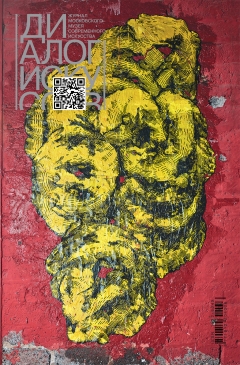A multidisciplinary project "General Rehearsal" curated by Francesco Mana- corda and made by three institutions, V-A-C Foundation, MMOMA and Kadist Foundation, is going to be opened on April 26.
|
|
Sergey Guskov. Many curators, mostly old-school ones, are friends of artists and as I understand from your interviews you are trying to be a friend
of visitors. Is it your position?
Francesco Manacorda. I would like to be in the middle, building a bridge between the two. Ultimately the mission of institutions and the mission of curatorial work is to bring art to the people and to build a comfortable zone where peo- ple can understand and enjoy art so. For me, the general public is one of the main stakeholders of what we are doing so I am doing exhibitions for the public and I am trying to build situations in which we follow artists in their territories. There is always a perception that if you want to do things for the public you are going to simplify and reduce the complexities and the amount of meaning that artists try to make into their work and I don’t think that that is the attitude that I want to take. I want to make sure that we offer to the public the tools and the means to decode what artists are doing. This is a civic responsibility of institutions to do that. I don’t mind siding with artists. It is very important also to make sure that artists are not pushed to do things for the public rather than for themselves. They have to be realizing their vision. What I really do not like and I am criticizing my colleagues is when curators do exhibitions for other curators so you need to have professional knowledge to completely understand the show. “General Rehearsal” requires quite a lot of explanation in order for people to understand what is going on but ultimately it is not that you need to know art theory or art history. You just need to understand the mechanisms and how theatre’s ways of thinking or theatre’s models have been imported into this field. Everyone knows what a play is and that there are three acts and what scenes in the acts are so in its complexity it still tries to provide visitors with something that is not unfamiliar.
S.G. Is there a limit to the amount of innovativeness that viewers can accept? Could the public be overdosed?
F.M. That is the difficulty. I don’t know the Russian public. This is the first show that I do here. I am relying on the knowledge of my colleagues. I am hoping to learn from this exhibition how the public works and what they are interested in. We also are in the process of designing an element in which we can absorb that kind of feedback during the show so we can make corrections as well. We will design an area on the ground f loor in front of the room where the Mike Nelson will be where people can leave a comment or a suggestion. Every week or every couple of weeks I will go through them and understand whether things can be improved in the course of the exhibition changing and creating the three acts. That is for me very important because this is what we need to learn and we need to put in position after the digital age is that institu- tions cannot be like the Italian ones, authoritative, just broadcasting.
S.G. When your curatorial group selected the artworks, what was the principle of selecting – big names?
F.M. I think that is important, big names, because they provide that level of com- fort that I was talking about earlier.
We wanted to have some really special encounters for the public and that is the way of creating a guaranteed reward for the public but also recontextualize these big names, and look at things differently. The way that we selected all the works uses this principle of families of works, the formations that look at work in that agency in that ability to affect the word rather than in categories of art history or thematic categories. We created these eight different families and then we went through the three collections trying to create some coherent groups that would help people look at things differently. That in itself is already a project of reclassification, even if it is temporary, which somehow that is a full-on exhibition.




